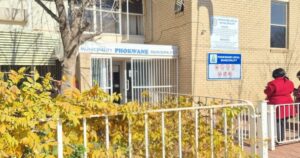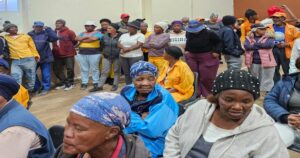As the basic education sector continues to battle budget cuts, the Democratic Alliance (DA) in the Northern Cape welcomes improvements in the management of incapacity leave and ill-health retirement (PILIR) by the Northern Cape Department of Education.
These improvements and ongoing fiscal constraints were reported by the department to the Portfolio Committee on Education yesterday, which continues the DA’s strive for financial accountability by the provincial department. We appreciate the fact that 63% of those employees who had been on PILIR-leave for more than a year have now exited the system, resulting in savings of R26.9 million for the current financial year.
I have asked for a written report on the department’s way forward with the 150 employees who remain on PILIR-leave and for further clarity on the sharp increase of PILIR-cases in the past three months. We must analyse why the Northern Cape has the greatest absenteeism rate per capita in the country and use these contributing factors to formulate an effective strategy for employee health and wellness.
It is also important for the department to mitigate against the adverse impact of these absences on Grades 10 to 12, especially in terms of science, technology, engineering and mathematical subjects. There is already a shortage of suitably qualified STEM-educators and schools offering these subjects in the Northern Cape, which contradicts the vision of a modernised education system building a modern capable, successful province.
It is non-negotiable that the department must embrace fiscal discipline and ensure that proper human resource management translates into real access to quality education for all our learners.
The DA therefor acknowledges human resources dedicated to programs in preparation of the grade 12 exams, but urges the department to extend their supervised study rooms at hostels, to temporary study centres where learners in need of a conducive study environment, can prepare themselves for the final exam. These study centres should be operated under the guidance of experienced supervisors albeit in the form of retired educators.
At the end of the day, it is the academic hopes and dreams of our children that are the most important factor.








